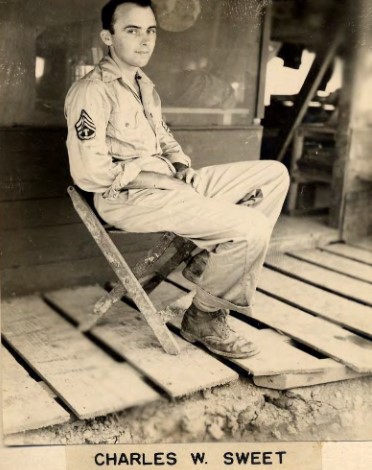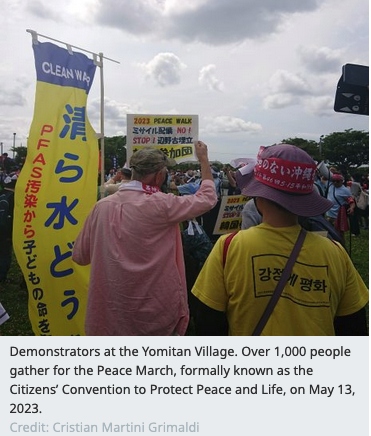
By Debra Sweet
On Memorial Day in Okinawa, June 23, I’ve been asked to speak in NYC at an event marking the terrible 1945 battle between the U.S. military and Japan at the end of WW II (in front of NY Public Library, 42nd St. & 5th Ave., 1:30-2:30 pm). There were hundreds of thousands of casualties and, of course, the U.S. tells the story as its heroic victory over Japan, which had occupied the island for centuries. The people of Okinawa were victimized multiple times by imperialism, through occupation, and losing an estimated – because who counts during wartime? – 25% of their population in the 1940’s, all of whom were non-combatants.
Since then, the people have been further victimized by the U.S. military, which built bases for all military branches taking up 14.6% of the entire island. People in Okinawa have protested for years to have them removed (joined at times by Veterans for Peace). Bill Clinton promised to move one base off the island when three U.S. military were convicted of raping an Okinawan child, but it went nowhere. Now that the U.S. and China are not just trading threats, but preparing for sea/air/land/nuclear confrontation, the U.S. is more committed than ever to its strategic operations there.
The organizers asked me to speak, I think, because I have been involved in opposing U.S. wars since Vietnam. They didn’t know I had a personal connection: my father Charles Sweet, at age 22, had been part of the Army occupying force. He never spoke about it until after the U.S. invaded Afghanistan and Iraq – which he protested at age 80. The whole Army experience turned him against wars of aggression. Though raised on a farm to shoot, he never again handled a firearm, wore the color green, or camped. There was trauma there that I didn’t understand – including his experience with a segregated military – until, at 84, he wrote about the Battle of Okinawa. Charlie would have been 100 next month.
Note: Charlie’s photo in Okinawan is above. Read his memories from that time here.

